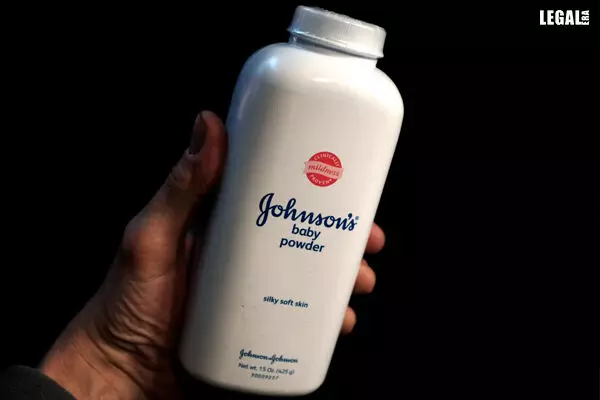- Home
- News
- Articles+
- Aerospace
- Artificial Intelligence
- Agriculture
- Alternate Dispute Resolution
- Arbitration & Mediation
- Banking and Finance
- Bankruptcy
- Book Review
- Bribery & Corruption
- Commercial Litigation
- Competition Law
- Conference Reports
- Consumer Products
- Contract
- Corporate Governance
- Corporate Law
- Covid-19
- Cryptocurrency
- Cybersecurity
- Data Protection
- Defence
- Digital Economy
- E-commerce
- Employment Law
- Energy and Natural Resources
- Entertainment and Sports Law
- Environmental Law
- Environmental, Social, and Governance
- Foreign Direct Investment
- Food and Beverage
- Gaming
- Health Care
- IBC Diaries
- In Focus
- Inclusion & Diversity
- Insurance Law
- Intellectual Property
- International Law
- IP & Tech Era
- Know the Law
- Labour Laws
- Law & Policy and Regulation
- Litigation
- Litigation Funding
- Manufacturing
- Mergers & Acquisitions
- NFTs
- Privacy
- Private Equity
- Project Finance
- Real Estate
- Risk and Compliance
- Student Corner
- Take On Board
- Tax
- Technology Media and Telecom
- Tributes
- Viewpoint
- Zoom In
- Law Firms
- In-House
- Rankings
- E-Magazine
- Legal Era TV
- Events
- Middle East
- Africa
- News
- Articles
- Aerospace
- Artificial Intelligence
- Agriculture
- Alternate Dispute Resolution
- Arbitration & Mediation
- Banking and Finance
- Bankruptcy
- Book Review
- Bribery & Corruption
- Commercial Litigation
- Competition Law
- Conference Reports
- Consumer Products
- Contract
- Corporate Governance
- Corporate Law
- Covid-19
- Cryptocurrency
- Cybersecurity
- Data Protection
- Defence
- Digital Economy
- E-commerce
- Employment Law
- Energy and Natural Resources
- Entertainment and Sports Law
- Environmental Law
- Environmental, Social, and Governance
- Foreign Direct Investment
- Food and Beverage
- Gaming
- Health Care
- IBC Diaries
- In Focus
- Inclusion & Diversity
- Insurance Law
- Intellectual Property
- International Law
- IP & Tech Era
- Know the Law
- Labour Laws
- Law & Policy and Regulation
- Litigation
- Litigation Funding
- Manufacturing
- Mergers & Acquisitions
- NFTs
- Privacy
- Private Equity
- Project Finance
- Real Estate
- Risk and Compliance
- Student Corner
- Take On Board
- Tax
- Technology Media and Telecom
- Tributes
- Viewpoint
- Zoom In
- Law Firms
- In-House
- Rankings
- E-Magazine
- Legal Era TV
- Events
- Middle East
- Africa
Maharashtra Government intends to cancel license of Johnson & Johnson; justifies decision to Bombay High Court

Maharashtra Government intends to cancel license of Johnson & Johnson; justifies decision to Bombay High Court
Cites the well-being of infants as its foremost priority
The Government of Maharashtra has taken the decision to cancel the manufacturing license of Johnson & Johnson baby powder in the state. Justifying its stand, the government told the Bombay High Court that the health and welfare of the consumer were its primary duty.
In its affidavit filed before the court, the government said that it will be a gross failure on its part if it fails to enforce the statutory provisions under the Drugs and Cosmetics Act and Rules meant to safeguard the health of the people.
The affidavit read, "It is submitted that the health and welfare of people/consumers is to be the highest while examining the cosmetic product in the instant case. It is a statutory duty apart from the moral responsibility of the petitioner to manufacture and supply the products that are safe for the consumers, particularly infants."
The government said that without assuring the quality of the baby powder, Johnson & Johnson cannot manufacture the product for sale as per the norms.
The state filed the affidavit through the assistant commissioner of the Food and Drugs Administration (FDA), opposing the company's petition challenging the cancellation of the license to manufacture the cosmetic product at a facility in Maharashtra.
The FDA official had reported that samples of baby powder sent for testing from two different batches were not of standard quality, as the pH level was 8.42. The conclusion had been upheld by the Central Drugs Laboratory, Kolkata, which, as per the Act, was considered conclusive evidence.
The affidavit refuted Johnson & Johnson's claim that pH values did not impact the health of the consumer.
The officer highlighted, "The action of the FDA authorities concerns public health at large. Nothing else matters when it comes to public health."
A bench of Justice SV Gangpurwala and Justice SG Dige asked the state if it had tested more samples from the same batch of baby powder, which was under challenge in the petition, or from any other batch.
The additional government pleader Milind More conveyed to the court of taking instructions and reverting.
Johnson and Johnson had stated that its license was canceled despite having provided stability and test reports of the latest batches of the talcum powder. Allegedly, the company also assured of submitting the pH level reports of the product.



